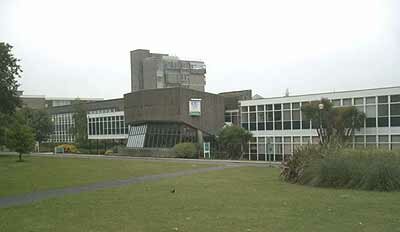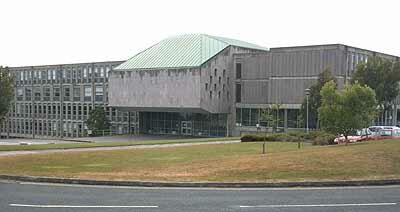Report Of The Gorsedd Delegate To The Cornish Sub-Committee
Of The European Bureau For Lesser-Used Languages
To The Closed Gorsedd, June 4, 2005.The Sub-committee has met twice during the past year, in September 2004 and in February 2005, at the language lab in Cornwall College. The UK Committee met just once for reasons of economy, in Belfast in October 2004, where our bard Profoes an Mordid was the Cornish representative.
The main elements of the business of the Sub-committee have been as follows:
- The Charter for Minority Languages and the Strategy which I will deal with separately.
- As I mentioned last year, the Sub-committee has invited the BBC, ITV and Pirate Radio to send representatives to our meetings but in spite of several reminders no replies have been received. This attempt to form a link with the media will be pursued especially as the media is an important element in both the Charter and the Strategy.
- The problems of the Sub-committee website took up much of the time at both meetings, but now the funding shortfall has been addressed and the website is up and running. In the long term there is a possibility that a future Language Development Officer may take ober the site as a ready-made channel of communication.
- Subscriptions have been the same for ten years at £10 per organisation represented and have now been increased to cover running costs and to build a modest balance support any future visits or projects.
- There have been two debates on the spelling situation which, again, I will mention under the heading of the Strategy.
The next meeting of the Subcommittee is planned for 15 September 2005 at Cornwall College.
CARADOK, Kannas Gorsedh Kernow, 04.06.05

Cornwall College
Progress Report On The Strategy For The Cornish Language To The Closed Gorsedd, June 5, 2004.Last year I reported that the Strategy had just been published in draft form. Well, submissions on the draft were received during the summer and then during the autumn the document was revised in the light of the comments and the final draft—again in four forms of spelling—was published in January this year, 2005.
This has been circulated widely and has now been adopted by the various cultural bodies including the following: Gorsedh Kernow, the Federation of Old Cornwall Societies, Agan Tavas, Kesva an Taves Kernewek, and Kowethas an Yeth Kernewek, and local authorities led by Cornwall Council, and including Kerrier District Council. It is on the agendas of the other five district councils and most of the town and parish councils. So, I can say that it has received a supportive and enthusiastic response.
The Strategy is made up of 6 Visions: these are visions of the future that can be realised, not just pipe-dreams. They can be achieved by the development of costed action plans in a step-by-step approach.
1&2 The first 2 visions are mainly concerned with education: teacher training, production of materials and a more professional approach to language learning. The Cornish Language Board has already held two teacher training days for speakers who wish to become better teachers and in the future there will be days for trained teachers who wish to learn Cornish and teach it. Research on the number of teachers, their qualifications, number and nature of classes and materials available has already been commenced by Cornwall Council.
3 Vision 3 is concerned with the language being valued in public life—not merely viewed as something quirky and obscure but an essential part of Cornish heritage. This will involve initiating discussions with, amongst others, the local authorities and the media.
4 Vision 4 is to do with the economy: we have already seen B&Q, Weatherspoons, ASDA, ‘Hager Vor’ and others using Cornish as a marketing tool, selling Kernow Plc, if you like. Discussions will be opened with businesses and trade organisations.
5 Vision 5 concerns parity with the other languages of these islands. We know that the Gorsedd, on the initiative of our former secretary Crugyow, secured a place for a representative of Cornish on the UK Committee of the EBLUL some 20 years ago. This year an officer from GOSW attended a meeting of the language committee of the British Irish Council, so we now have an opportunity to have input and feedback at that level.
6 Vision 6 concerns the methodology and infrastructure to enable the first 5 to be achieved. A proposition has been sent to the Minister (formerly Nick Raynsford, now Phil Woolas) suggesting a Monitoring Group—consisting of representatives of all the language organisations, the Gorsedd, the Institute of Cornish Studies, District Councils, GOSW, plus appropriate councillors and officers from Cornwall Council has been proposed to oversee the process—and a smaller group, similar to the Strategy Steering Group that has worked on the project hitherto, that would oversee the work of a future Language Development Manager. The minister has also been asked to provide a budget of £80,000 per annum for 3 years. It is envisaged that this would be supplemented with £20,000 from Cornish sources and then used as match funding for an Objective I bid. A reply is expected fairly soon. The resulting £200,000 per annum would be sufficient to employ the manager, support staff and a working budget. One of the manager’s duties would be to investigate future funding sources.
The whole project will be a public/voluntary partnership, accountable to the organisations involved and to the general public and endorsed by government. It is a matter of building the capacity of the language movement to expand the work it has been doing for many years and to complement it with work in the public sector.
The Steering Group has set up a committee to organise a public one-day conference on language planning to be held at Tremough on 17 September, hosted by the Institute of Cornish Studies. There will be eminent speakers on the subject from outside Cornwall and the opportunity for delegates to take part in workshops and report back to a plenary session. It is envisaged that this could become an annual event, with the reports feeding into a revision of the Strategy in the autumn of each year, starting in 2006. It will be an opportunity for arguments to be put forward in a properly structured situation.
One of the ‘Early Priorities’ of Vision 6 is to ‘initiate inclusive discussion and debate aimed at establishing, in the longer term, the way forward on how Cornish is to be written in official documentation and formal education’. It is becoming clear that there is a will to grasp the nettle and attempt a settlement of the spelling debate. We shall be aiming at getting a consensus on a fair and open process for examining the issues and reaching a conclusion acceptable to as large a majority of the Cornish community as possible. I believe that that will be the time for this organisation, the college of bards, to re-examine its own position regarding spelling and give leadership at the appropriate moment.
Over the year, we on the Strategy Steering Group have been the object of what I can only describe as an onslaught of questioning and criticism... It would take too long to answer all the criticisms here but we are content to be judged on our record over the past two years during which we have consulted the people, drawn up the first—I emphasise ‘the first’—strategy for Cornish and started, with our partners, implementation of the document. I believe the next year will see significant progress.
I would like to thank Cornwall Council for the officer time spent on producing the Strategy, for the administrative support and for matching the £5,000 made available by the Office of the Deputy Prime Minister to enable the project. Also a sincere thanks as Chairman of the Steering Group to all those bards who have worked so hard to produce this document. The year 2003 which saw Cornish specified under the Charter was of great symbolic significance, but I believe the last 12 months have been momentous for Cornish: the language has been brought, blinking, from the shadows into the broad daylight to take its rightful place at the centre of Cornish affairs and has started on the long process of development with full official support.
CARADOK, Kaderyer Bagas-lywya an Strateji rag Kernewek. 04.06.2005

County Hall
Web site maintained 2004-2005 Rob Follett Computer Services, logo copyright © 2001, 2002 neshaver
All images copyright © The Gorseth of Cornwall unless otherwise attributed
|

